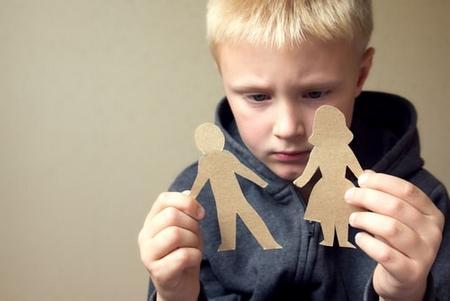Recent Blog Posts
What Are the Types of Protective Orders Available in Illinois?

There are multiple types of situations where a person may need to receive protection from domestic abuse or other harmful conduct. An order of protection can be used in these cases, and it can help a person leave an abusive situation, prevent their abuser from contacting them, and put other restrictions in place. In a recent blog, we looked at when an order of protection may be appropriate. As a follow-up, we wanted to look at the types of orders that are available and the process that is followed when a person asks for these types of protections.
Types of Orders of Protection
Most of the time, a victim of domestic abuse will file a petition for an emergency order of protection. This is also known as a temporary or “ex parte” order of protection, and a person can request a hearing before a judge where they will provide reasons for why the order is necessary. The respondent to the order does not need to be present at this hearing, and they will usually be notified after the order has been issued.
Can I Receive an Order of Protection to Address Domestic Violence?
 There are many situations where one or more family members may need to receive protection from domestic abuse. While domestic violence may be a factor in divorce or child custody proceedings, it can also affect former spouses, couples who used to be in a relationship or who share a child, or people who live in the same household. Those who have been the victims of abuse or who fear for the safety of themselves or their loved ones can request an order of protection.
There are many situations where one or more family members may need to receive protection from domestic abuse. While domestic violence may be a factor in divorce or child custody proceedings, it can also affect former spouses, couples who used to be in a relationship or who share a child, or people who live in the same household. Those who have been the victims of abuse or who fear for the safety of themselves or their loved ones can request an order of protection.
When Are Orders of Protection Appropriate?
A person may ask for an order of protection (which is commonly referred to as a restraining order) in cases where they or their family members have experienced domestic abuse committed by a family member or a person in their household. A person can file a petition for an order of protection for themselves or on behalf of a minor child or an adult with disabilities who is unable to file a petition on their own. These requests may be filed as part of an ongoing divorce or family law case or in a separate legal proceeding.
When Should a Couple Consider Signing a Prenuptial Agreement?
 When a couple is planning to get married, divorce is probably the last thing on their mind. When preparing for a life together as partners, a couple usually will not want to think about the possibility of their relationship ending. However, considering this issue can not only help a couple prepare for this unpleasant possibility, but it can also help them identify and address issues that may become a concern in their relationship in the future. After discussing these matters, a couple may find that creating a prenuptial agreement would be a good idea.
When a couple is planning to get married, divorce is probably the last thing on their mind. When preparing for a life together as partners, a couple usually will not want to think about the possibility of their relationship ending. However, considering this issue can not only help a couple prepare for this unpleasant possibility, but it can also help them identify and address issues that may become a concern in their relationship in the future. After discussing these matters, a couple may find that creating a prenuptial agreement would be a good idea.
Reasons to Sign a Prenup
When creating a prenuptial agreement, or prenup, a couple will make decisions about how certain issues will be handled if their marriage ends, including through divorce, legal separation, or the death of a spouse. This can ensure that they will both have the financial resources they need in such cases, while also allowing them to minimize disputes during the divorce process. A prenup can be beneficial in many situations, including when:
3 Examples of Asset Dissipation That May Affect a Divorce Case
 There are multiple types of financial issues that can play a role in a divorce case. Determining how to divide marital property in a way that is fair while providing for the needs of both parties can be complicated enough on its own, but in some cases, additional issues may arise that can make this process even more difficult. Asset dissipation in which one spouse wastes or destroys marital property is one factor that may need to be addressed. A person who believes that their spouse has dissipated assets can work with an attorney to ensure that this issue is dealt with properly during the property division process.
There are multiple types of financial issues that can play a role in a divorce case. Determining how to divide marital property in a way that is fair while providing for the needs of both parties can be complicated enough on its own, but in some cases, additional issues may arise that can make this process even more difficult. Asset dissipation in which one spouse wastes or destroys marital property is one factor that may need to be addressed. A person who believes that their spouse has dissipated assets can work with an attorney to ensure that this issue is dealt with properly during the property division process.
Ways a Spouse May Dissipate Assets
Dissipation of assets involves the use of marital property by one spouse in a way that benefits themselves and is not related to their marriage or family. A valid dissipation claim must show that dissipation occurred while the marriage was undergoing an irretrievable breakdown. Some of the most common ways that a spouse may commit asset dissipation include:
How Are Child Custody Disputes Resolved in an Illinois Divorce?
 During a divorce, spouses will often encounter multiple types of disagreements over the various issues that will need to be addressed in order to end their legal partnership. For parents, disputes related to child custody will often be some of the most contentious issues, and spouses may have completely different ideas about how to make decisions regarding their children or expectations about when children will live with each parent. By understanding how Illinois law addresses these issues, parents can determine how to reach workable solutions, or they can prepare to advocate for their rights through litigation in court.
During a divorce, spouses will often encounter multiple types of disagreements over the various issues that will need to be addressed in order to end their legal partnership. For parents, disputes related to child custody will often be some of the most contentious issues, and spouses may have completely different ideas about how to make decisions regarding their children or expectations about when children will live with each parent. By understanding how Illinois law addresses these issues, parents can determine how to reach workable solutions, or they can prepare to advocate for their rights through litigation in court.
Factors Considered in Child Custody Disputes
Parents are usually encouraged to work together to resolve issues related to their children and create a parenting plan that details how they will share parental responsibilities and parenting time. Parents can make sure they are approaching these negotiations the right way by understanding the factors that courts may consider when making decisions about child-related issues. This can also give them an understanding of what issues a judge may look at if negotiations break down and litigation will be required to resolve these matters.
Do You Have to Be Separated for a Certain Amount of Time Before Divorcing in Illinois?
 The decision to end your marriage is likely one of the biggest decisions of your life. There is no "undoing" a divorce once it is finalized. Consequently, some states require married spouses to wait a certain amount of time before they can get divorced. Illinois used to have such a requirement; however, there is no longer a mandatory separation period or waiting period for divorce in Illinois. That being said, there are still certain criteria that must be met before you can divorce in Illinois.
The decision to end your marriage is likely one of the biggest decisions of your life. There is no "undoing" a divorce once it is finalized. Consequently, some states require married spouses to wait a certain amount of time before they can get divorced. Illinois used to have such a requirement; however, there is no longer a mandatory separation period or waiting period for divorce in Illinois. That being said, there are still certain criteria that must be met before you can divorce in Illinois.
Divorce Requirements and the Separation Period
To get divorced in Illinois, you or your spouse must have lived in the state for 90 days or longer. You may divorce in Illinois even if you were not married in the state.
Before changes to the Illinois Marriage and Dissolution of Marriage Act, spouses also had to live apart for a certain period of time before they were eligible for divorce. In 2021, though, there is no longer a mandatory separation period. Furthermore, there are no longer fault-based grounds for divorce in Illinois. The only reason you can seek a divorce in Illinois is "irreconcilable differences." In other words, you and your spouse simply cannot get along anymore, and you wish to terminate your marriage relationship.
Should I Keep the Family Home in My Illinois Divorce?
 Getting a divorce can be a stressful experience, especially if you feel like your life is being completely upended as you separate from your spouse. As you determine how to divide your marital property and address other financial matters, one issue that will need to be resolved is ownership of your family home. Being attached to the home where you have lived is understandable, and you may wish to continue living there after completing your divorce. However, you will want to be sure to understand the ramifications of this decision and make sure you will be positioned for financial success as you move on following the end of your marriage.
Getting a divorce can be a stressful experience, especially if you feel like your life is being completely upended as you separate from your spouse. As you determine how to divide your marital property and address other financial matters, one issue that will need to be resolved is ownership of your family home. Being attached to the home where you have lived is understandable, and you may wish to continue living there after completing your divorce. However, you will want to be sure to understand the ramifications of this decision and make sure you will be positioned for financial success as you move on following the end of your marriage.
Reasons to Keep the Family Home
Maintaining ownership of your home may seem like the ideal outcome in your divorce, especially if you have lived there for a significant time, built connections with others in your community, and want your children to continue to live in the home they have become accustomed to. After spending years making mortgage payments and building equity in your home, you may not want to give up this valuable asset, especially if you have made improvements and put your own personal touch on the property.
How Should Divorced Parents Address the 2021 Advance Child Tax Credit?
 There are a variety of tax issues that spouses will need to consider when they get a divorce. When parents are divorced or separated, a child can only be claimed as a dependent by one party. In many cases, the custodial parent who has the majority of the parenting time will be able to claim a child, although a couple’s divorce settlement may provide for other arrangements, such as each parent claiming a child in alternating years. The parent who claims a child as a dependent can receive a child tax credit when filing their tax return.
There are a variety of tax issues that spouses will need to consider when they get a divorce. When parents are divorced or separated, a child can only be claimed as a dependent by one party. In many cases, the custodial parent who has the majority of the parenting time will be able to claim a child, although a couple’s divorce settlement may provide for other arrangements, such as each parent claiming a child in alternating years. The parent who claims a child as a dependent can receive a child tax credit when filing their tax return.
In 2021, this issue has been complicated by a law that provides parents with an Advance Child Tax Credit. Divorced parents or those who are going through the divorce process will need to be sure these tax credits are addressed correctly.
What Is the Advance Child Tax Credit?
As part of the ongoing efforts to provide assistance to people who have been affected by the COVID-19 pandemic, the federal government has begun making advance payments to taxpayers who will be able to claim a child tax credit for 2021. The total tax credit for children who will be five years old or younger at the end of 2021 is $3,600, and children who will be 17 or younger at the end of 2021 will qualify for a tax credit of $3,000. Half of this total credit is being sent to those who can claim children as dependents in monthly payments from July through December of 2021. Parents will receive $300 per month for each child under the age of six and $250 per month for each child under the age of 18.
How Can I Bring Up a Prenuptial Agreement with My Partner?
 Prenuptial agreements are marital contracts that cover a wide range of issues. These documents are grossly misunderstood by the general public. Some people assume that prenuptial agreements are only necessary if a spouse intends to get divorced or does not take the marriage seriously. Others assume that if a spouse asks for a prenuptial agreement, he or she plans to take advantage of the other spouse financially. Although these myths are slowly being replaced by facts, it can still be a difficult topic to broach with a fiancé(e).
Prenuptial agreements are marital contracts that cover a wide range of issues. These documents are grossly misunderstood by the general public. Some people assume that prenuptial agreements are only necessary if a spouse intends to get divorced or does not take the marriage seriously. Others assume that if a spouse asks for a prenuptial agreement, he or she plans to take advantage of the other spouse financially. Although these myths are slowly being replaced by facts, it can still be a difficult topic to broach with a fiancé(e).
Wait Until the Right Time to Talk About a Prenup
Prenuptial agreements are increasingly popular among engaged couples, especially couples who own substantial assets or investments or have substantial debts. If you are interested in signing a prenup before tying the knot, you may be unsure of how to bring it up with your partner.
What Happens During Divorce Discovery in Illinois?
 If you are getting divorced, you may be completely unsure of what to expect. How long will the divorce take? Will I need to go to court? What steps are involved in the divorce process? Questions like these are important. While there is no way to predict exactly how your divorce case will unfold, educating yourself about the Illinois divorce process will help you prepare for the different possibilities. The "discovery" phase of the divorce involves gathering facts and information using discovery tools such as interrogatories and depositions.
If you are getting divorced, you may be completely unsure of what to expect. How long will the divorce take? Will I need to go to court? What steps are involved in the divorce process? Questions like these are important. While there is no way to predict exactly how your divorce case will unfold, educating yourself about the Illinois divorce process will help you prepare for the different possibilities. The "discovery" phase of the divorce involves gathering facts and information using discovery tools such as interrogatories and depositions.
Discovery Depends on the Spouses’ Transparency
Divorcing spouses are asked to fill out a financial disclosure form in which they list assets, income, and other financial data. If both spouses freely disclose accurate financial data and other relevant information, the discovery process involves little more than confirming this information. Unfortunately, in many divorce cases, spouses are not fully transparent about financial issues or other divorce concerns. They may refuse to disclose certain information, hide assets, or lie about parenting matters. Consequently, the spouses’ attorneys must use various legal methods to obtain this information and ensure its accuracy.












